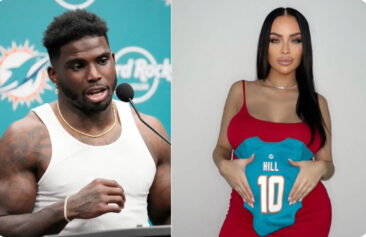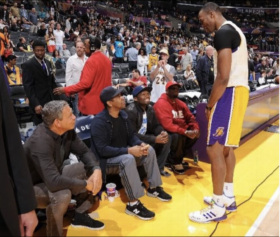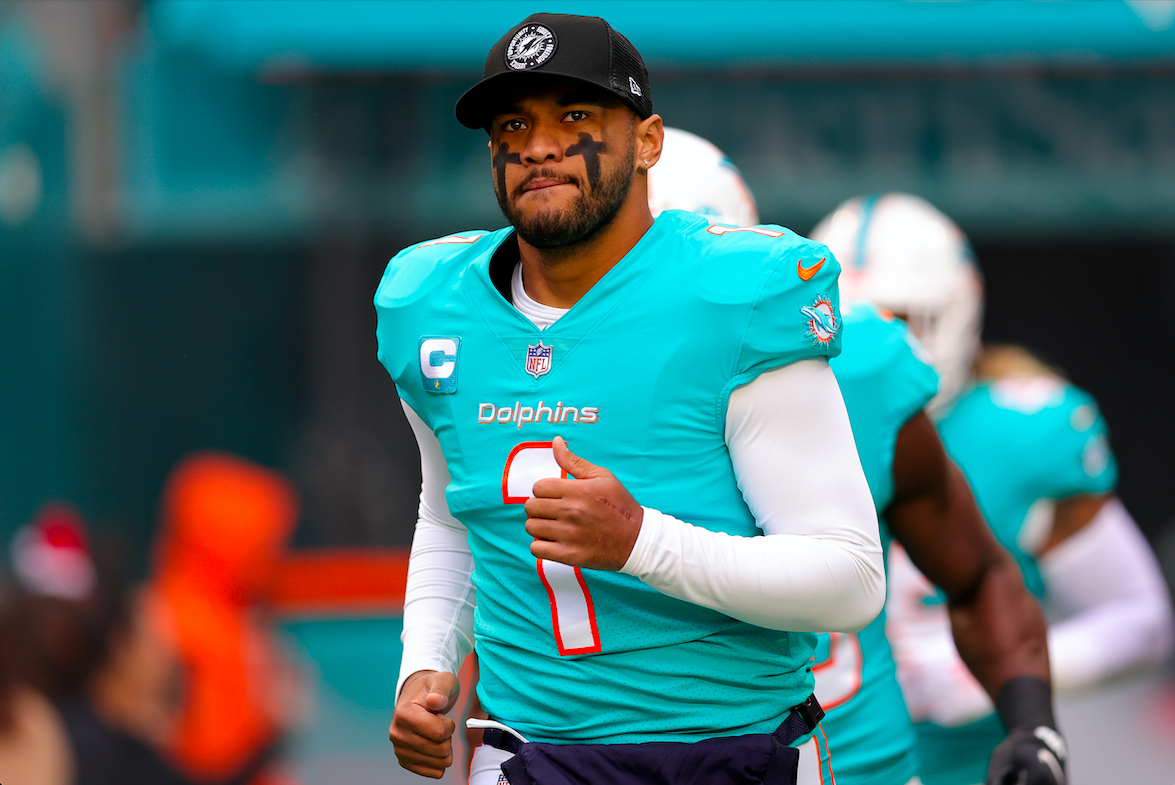Some people think Rich Incognito is a bad dude and a coward picking on a scared kid. Others blame Jonathan Martin’s passiveness and obvious emotional instability in handling the situation. Many folks blame the Dolphins players and coaches for not recognizing Martin’s problems or checking Incognito.
Others feel a bigger point is being missed.
Slavery ended almost two hundred years ago. We unfathomably have a black president at the helm. So why do brothers still have to hear a white dude calling him the N-word?
As the Incognito situation is revealing, the use of the N-word—once totally unacceptable in any context—has become so layered, multi-purposed and confusing that people don’t even throw the same hissy fits about the use anymore.
In past generations, if a white NFL player was publically exposed using such racial epithets, Al Sharpton and Jesse Jackson’s entire Rainbow Coalition would protest. It doesn’t seem like too many fans are overly concerned with the fact that Incognito used the N-word during his two-year torture of Martin. But why?
As my great-grandma Mattie used to say, “Times be changing.”
The cultural transformation of the N-word is a fascinating phenomenon. It’s gone from a vicious word, and the most demeaning thing you can say to a person of color (nigger), to a term of endearment in many diverse social circles (nigga/niggaz/niggas).
"Nigger" has a different vibe and connotation than "Nigga." It’s subtle but quiet obvious, and its acceptance is usually dictated by the manner in which its used and the emphasis placed on the end of the word. It’s a slippery slope that most white people prefer not to even venture down.
These days, there isn’t one universal belief or philosophy involving the N-word, so non-blacks are always using it at their own risk. A white person may be allowed to say “nigga” in certain settings. The problem is, they could use the word with their black friends at a rap concert, go across the street and say it around strangers and end up in the ICU or headed to Rikers Island on a hate crime charge.
One thing this Incognito situation brings to light is that there’s definitely a societal gap when debating the appropriateness of using the N-word.
People 50-and-older, who grew up in a climate of segregation and open racism, detest the word. They identify with its original purpose as a reminder of the sub-human way blacks have been categorized and treated in this country since slavery. The non-blacks in this age demographic tend to approach the word with the same caution, as they are also more sensitive to the history of the word, having witnessed the early struggles of African-Americans in achieving social, educational and financial equality in this country.
The 30-45 age demographic grew up in an era where urban music began claiming the N-word as its own and transforming the once derogatory word into a symbolic chant with varying meanings — depending on who was saying it and with what intention. Rap songs in the ‘90s began using the word for dual purposes.
The expression “My nigga” became a unity cry intended to express comradery and identification with a particular person or group of people (usually Black or Hispanic). The word was still largely off limits to non-minorities, but its use was becoming more socially acceptable amongst hip-hoppers, gangsters and the fringe game-shapers of black society.
Q-Tip explains the myriad meanings of the word and the emotional struggle and tug-of-war blacks experience with using it, in the A.T.C.Q. song entitled “Sucka Nigga”:
See, nigga first was used back in the deep south
Fallin' out between the dome of the white man’s mouth
It means that we will never grow, you know the word dummy
Other niggas in the community think its crummy
But I don’t, neither does the youth cause we
Em-brace adversity it goes right with the race
And being that we use it as a term of endearment
Niggas start to bug to the dome is where the fear went
Now the little shorties say it all of the time
And a whole bunch of niggas throw the word in they rhyme
Yo' I start to flinch, as I try not to say it
But my lips is like the oowop as I start to spray it
My lips is like a oowop as I start to spray it
My lips is like a oowop as I start to spray it.
Q-Tip also explains how young, black hip-hop artists have embraced the word and flipped it, stripping the word of its original derogatory meaning. Now, 95% of today’s hip-hop songs use the word like commas in run-on sentences.
“My niggaz” is a term that can include friends, family, or people who blacks affectionately love. Tupac is credited with having an intellectual, forward thinking mind, but his 1993 album was entitled Strictly 4 My N.I.G.G.A.Z. Despite his lyrical genius, it was a verbal shrine dedicated to the N-word.
We can’t discount the endless number of hip-hop songs, albums and videos that freely and unapologetically feature the N-word.
DMX had all of Woodstock barking “My niggas” and rocking in unison, when he tore it down out there in 1999.
Who can forget C-Murder’s dirty south anthem, "Down For My Niggaz?" He had every clique—from a bunch of strawberry blonds at an Ohio club to a posse of rude boys lounging on Gates Ave in Brooklyn—expressing affection for their people through the all-encompassing use of the N-word.
Rap may have started in the park jams of the Bronx and Queens as “black music,” but it has definitely become the most mainstream musical art form, while still maintaining some of its original grit and edginess.
It’s not uncommon for the most intelligent black men and women to use the word for various reasons, and with varying meanings. In today's changin social climate, the N-word’s ferocity is losing traction as cable networks and social media centralize and dumb-down artistic culture. People across the globe have greater access to other cultures, music, fashion and ways of expression. In the process, certain taboo words and practices (marijuana use, gang-banging, interracial and gay couples, use of the “N” word) have become more mainstream.
To see the glaring transformation of the N-word in the last decade, look no further than the Wayans Brothers movie-comedy, “White Chicks.” There’s a scene where the crew of young, wealthy girls are cruising in their whip and start bumping 50 Cent and B.I.G., which has extensive use of the N-word in the chorus. At first they didn’t know if it was “appropriate” to use the word, but the black men dressed in white face (Wayans posing as white girls), and the cats spitting the lyrics, gave them the pass. The ladies seemed excited to be able to step over that line with no ramifications.
As hip-hop became more mainstream, the N-word was no longer just used by bigots and low-life, thug rappers painting pictures of ratched lifestyles and criminal enterprises.
The crème del crème of the rap world like Jay Z, Kanye West and Snoop Dog have used the word so much in so many different places, that the younger generations are becoming numb to its heinous nature. The N-word is taking on a whole new meaning amongst the teenagers and young 20-somethings growing up in this musical culture.
Race mixing and the number of interracial kids is at an all-time high. The high school and college aged “hipster”–regardless of race–has increasingly adopted the N-word as a symbol of unity, edginess and against-the-establishment expression within their respective social circles. Some blacks allow their friends of other races to use the N-word and at times encourage it by their own flippant and excessive usage of it.
Comedian Dave Chappelle used it as the beginning and end of every punch line that made him into a rich, mega star.
The complexities of the word and how it affects different people was in full effect when Gwyneth Paltrow took a trip to Europe to hang out with her BFFs, Beyonce and Jay Z, Paltrow, considered as hip-pop savvy as a rich white actress can be, took a picture of the crew and tweeted the words “n****s in Paris for real.” She got lambasted on social media for the tweet, but Paltrow defended her use of the word, claiming that it’s ok to repeat the title of the song. Nobody picketed her Hollywood mansion or anything.
It’s all about time and place with the N-word. You never know when it’s going to strike a nerve or be all good.
It’s a word that Paltrow probably is allowed to use when hanging with the elite of black entertainment society. I guess using the word makes her feel more accepted and cooler by the black “in crowd.” Sort of like how the Dolphins players feel Incognito acts more “black” than the soft-spoken Martin.
After all, if the kings of cool use that word in every song they write, and it hasn’t stopped them from getting endorsements or marketing to the youth. How is anybody getting butt hurt when a white person becomes thoroughly confused as to when and where they can use it?
Those older cats and specific people who had negative experiences with the N-word, and share a personal and deeper historical sense of how demeaning the word was/is, are less accepting of what Incognito said.
The players who came up with him, and got to know him personally, agree that he is rough around the edges and a jerk at times. But none of them are cosigning the fact that he is a racist, even though Incognito sounds like a proud member of the KKK on the clip of that message he left Martin.
Incognito is white playing in a predominately black sport and exists within a locker room culture that is led by African-Americans. On the surface, he used the words of a bigot. A deeper look into the Miami Dolphins social structure and it appears to me that the N-word was used freely. As “an honorary” black man, Incognito’s pass on using the word was an example of how beloved he was by his black teammates.
Of course, some people still ain’t having it. They still believe that if you use the word, you are bigoted. However, in attempting to keep up with the changing cultural landscape of the world, it’s obvious that we can’t hold the word to the same egregious standards anymore.
We know that there are times when using it is forbidden: on the job, in church, around people of certain ages. It will get you fired.
Cooking queen Paula Deen lost her show on the Food Network after admitting to the use of racial slurs in the past. TV host Bill Maher, a liberal who hangs with his share of brothers—and sisters–came to Deen’s defense. He said that it’s no worse than a black rapper using the N-word. Problem is, Deen is a white women who grew up in Georgia in the 1940s. She knows what it is.
Maher’s defense might sound crazy, but the green light that music and modern culture has given for usage of the N-word, and the way it has permeated society on a global scale, is definitely changing people’s views. Particularly the younger generation who are less frequently equating the N-word with racism.
Older heads kind of have to start getting with the program.
Oaktown rapper Too $hort is 47 years-old, and his career spanned every hip-hop era. He sums it up best about why some white people use the N-word, and why racism is no longer the driving force behind the word's importance.
Removing the power from the N-word seems to be the best way to go about negtating its value. Chris Rock once explained it like this: “Nigger is the nitroglycerin of words and in the wrong hands it can hurt…. We took this (vile) word and made it into poetry."
So maybe the people not harping on Incognito’s use of the word are simply not giving this creep or the hurtful words he uses further props or power.



